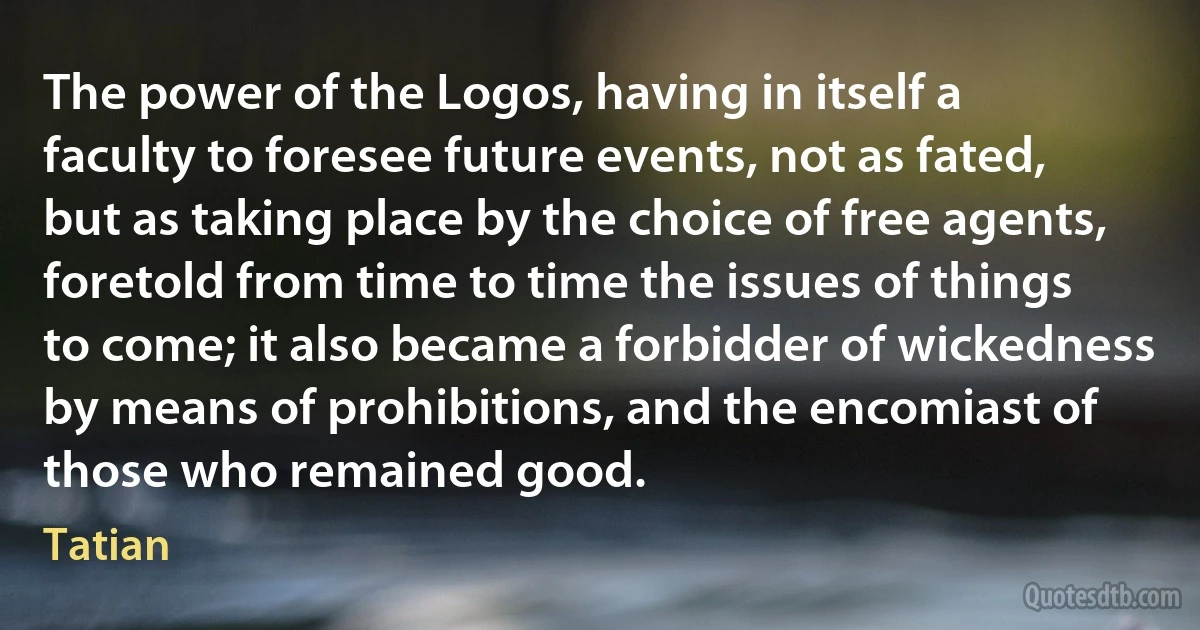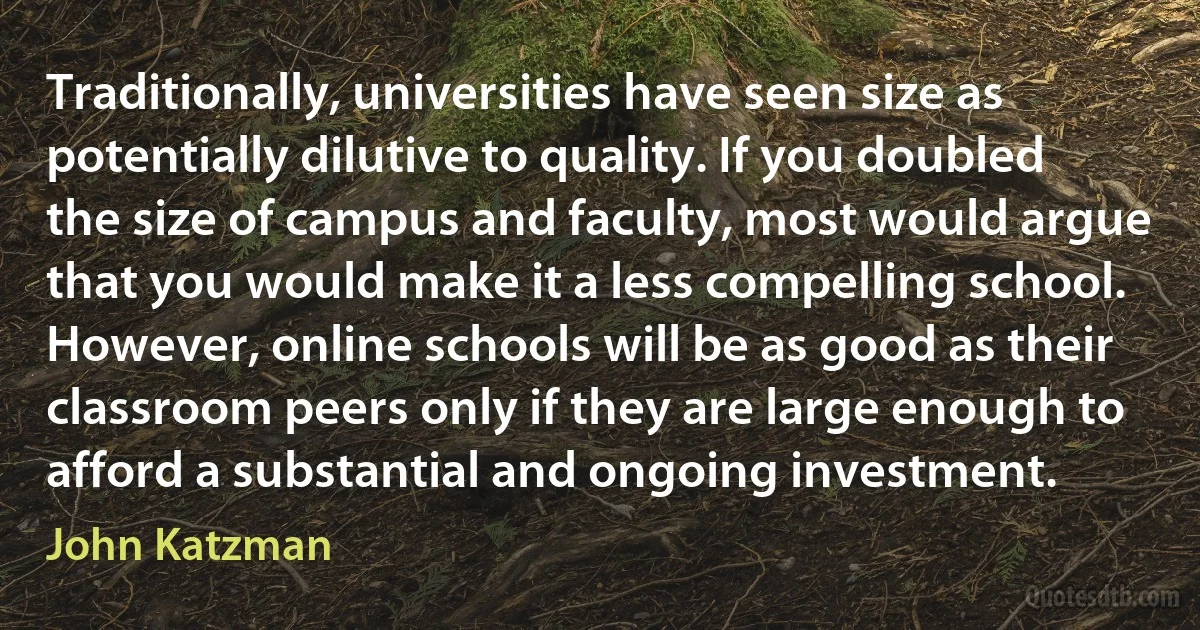Faculty Quotes - page 10
A man with taste is the same as a woman with taste. Man invents his home, woman - her dress. Being an artist means having an individual, distinct from all other people's perception and concept of every single thing. Being an artist does not mean possessing a faculty of combining lines and paints, being artful in this or that sort of art, but having a world inside oneself and individual forms to express it.

Marianne von Werefkin
In the early 1960s there existed a successful quantum theory of the electromagnetic force (QED), which was completed in the late 1940s, but the theories of the weak and strong nuclear forces were not yet known. In UC Berkeley, where I was a graduate student during the period 1962 – 66, the emphasis was on developing a theory of the strong nuclear force. I felt that UC Berkeley was the center of the Universe for high energy theory at the time. Geoffrey Chew (my thesis advisor) and Stanley Mandelstam were highly influential leaders. Also, Steve Weinberg and Shelly Glashow were impressive younger faculty members. David Gross was a contemporaneous Chew student with whom I shared an office.

John Henry Schwarz
If you peruse the table of contents of a textbook on organizational theory or search the web for courses in organizational sociology, you cannot help but notice how many of the key contributors to the field spent time at Stanford between 1970 and 2000, as faculty members, post-docs, or graduate students... Of the five most influential macro-organizational paradigms in play today - institutional theory, network theory, organizational culture, population ecology, and resource dependence theory (in alphabetical order) – Stanford served as an important pillar, if not the entire foundation, for all but network theory. By the 1990s, it became an important site for network theory as well.

Frank Dobbin
Skidelsky tells us, Keynes was also practical, absorbed in questions of economic policy, argumentative, benevolent and intolerant, often rude, and had an intellectual arrogance that would allow positions previously held with great passion to be calmly abandoned. Well, that is exactly what the Cambridge faculty was like in the 1960s. Not only did the ghost of Keynes dominate the content of economics education at Cambridge, it also dominated the style. That style could be sustained with substance only by the extraordinarily gifted. So it is not surprising that the Cambridge faculty, although still very "Keynesian," looks much more conventional these days.

John Eatwell, Baron Eatwell
If society is organized to insulate its own arrangements from challenged and change, and thus to give itself the semblance of a natural object or an alien fate, the noncomputable and the nonmodular aspects of the mind will remain no more than a penumbral light around the darkness of computability and modularity. However, as society acquires the features of democratic experimentalism, those aspects become central to the life of the mind. The hold of the innate mental faculty on our experience gets turbinated by a political construction.

Roberto Mangabeira Unger
Brother Leon arrived late for the performance. His late entrance was not a surprise. Everybody knew that Leon hated the student skits and sketches. Too often there had been hilarious takeoffs on the faculty and, a few years ago, a devastating burlesque of Brother Leon by a student named Henry Boudreau. Boudreau had minced across the stage, speaking in a prissy voice, wielding an oversized baseball bat the way Leon used his teacher's pointer, as a weapon. The performance had become a legend at Trinity. But funny thing about Boudreau: He had flunked out at the end of the year.

Robert Cormier
Students of the human mind have long noted its ability to mimic internally the positive notions and transformations of objects in the external world. In the middle of the eighteenth century, the British empiricist David Hume wrote that to "join incongruous shapes and appearances costs the imagination no more trouble than to conceive the most natural and familiar objects" and that "this creative power of the mind amounts to no more than the faculty of compounding, transposing, augmenting, or diminishing the materials afforded us by the senses and experience."

Roger Shepard



